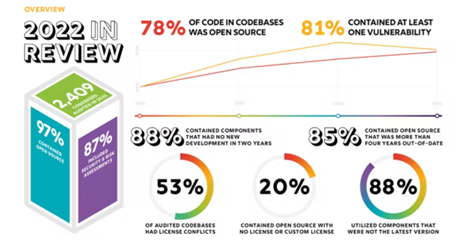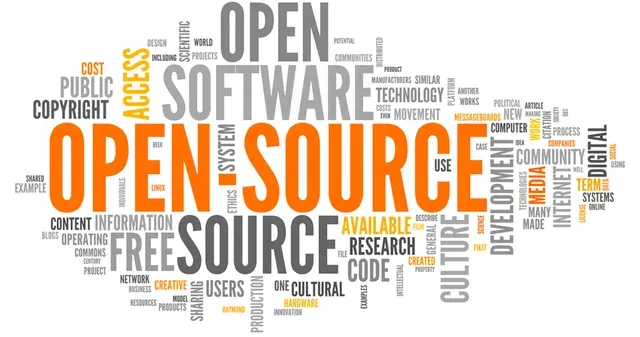What Is Open Source?
Open source refers to an openly distributed program code (including codes that are free of charge) that can be utilized and modified by the end-user without restriction.
Type of Open Source technologies
Open-source office technologies
- Abi word - word processing tool
- Open Office.org – a business productivity suite
- Libre Office – a business productivity suite
- CiviCRM - customer relationship management
- V Tiger CRM Open Source - customer relationship management
- MySQL or Maria DB - relational database
- PostgreSQL - relational database
- Mongo DB – non-relational database
Open-source accounting Technologies
- GNU cash - small business accounting and personal finance software
- SQL Ledger - web-based enterprise resource planning system
- Front Accounting - accounting and enterprise resource planning software
- Odoo - accounting, CRM, and ERP
Open-source operating systems
- GNU/Linux (various versions or distributions include Debian, Fedora, Gentoo, Ubuntu, and Red Hat) - operating system
- FreeBSD - operating system
- Android - mobile phone platform
Open source website software
- WordPress - blog hosting platform
- Alfresco Community Editions - enterprise content management system
- Joomla - enterprise content management system
- Drupal - enterprise content management system
- Magento – e-commerce website platform
- PrestaShop – e-commerce website platform
- Apache - webserver software
- Nginx – webserver software
- PHP - web application scripting engine
Open source browsers and communication applications
- Juice Receiver - podcasting
- Mozilla Firefox - web browser
- Mozilla Thunderbird - email client
- Pidgin - instant messaging
- MediaWiki - information sharing platform
- Zimbra - email and collaboration server
- FileZilla - FTP client
Open-source IT security
- Clam AV - antivirus software
- Wireshark (originally named Ethereal) - security application
- KeePass - password management
- Smoothwall - firewall and security tools
Images/multi-media
- GIMP - image processing/graphics editing
- Ogg - open video and audio codecs
- Blender - animation and video editor
- VLC - multimedia file playback
Open source development tools
- Ruby on Rails - rapid web application development
- Eclipse - integrated development environment
Advantages of open-source software
Utilizing open-source software has many advantages over its proprietary peers, especially for businesses and organizations just getting started in the industry
- Open-source software tends to be more flexible as it offers programmers multiple ways of solving problems and encouraging creative solutions
- Improvements and bug fixes on OSS happen much more quickly. Because open-source software allows collaboration, issues, and improvements are implemented at a faster pace.
- It's cost-effective. Generally speaking, proprietary software requires internal employees to work on its source code to keep the information private. Open-source software allows those unaffiliated with the project access without its authors having to pay out for further development.
- You can attract better talent. If a small business launches open-source software, the ability of all programmers to view and modify it could allow the organization to recruit particularly talented employees.
Disadvantages of open-source software
- Open-source software can be more difficult to use since it may have less user-friendly interfaces or features that aren't familiar to all programmers.
- Compatibility issues may arise if the hardware used to create a piece of open-source software isn't available to all programmers working on it. This could also drive up the costs of the project.
- Open-source software doesn't come with the same warranties and indemnification as proprietary applications. This could become a problem as open-source software may provide no real protection from infringement.
What are the differences between open source and closed source Technologies?
Price
- Open Source - Available for nominal or zero licensing and usage charges
- Closed Source - Cost varies based on the scale of the software
Tax calculation
- Open Source - Difficult due to undefined monetary value
- Closed Source - Definite
Stability
- Open Source - Some open-source solutions are very popular and are even market leaders (e.g., Linux, Apache).
- Closed Source - In some industries, proprietary software is more popular, especially if it has been in the market for many years.
Warranty
- Open Source - No warranty is available.
- Closed Source - Best for companies with security policies requiring a warranty and liability indemnity
Open Source Security and Risk analysis
The 2022 “Open Source Security and Risk Analysis” (OSSRA) report, in its 7th edition this year, examines vulnerabilities and license conflicts found in more than 2,400 codebases across 17 industries. The report offers recommendations to help security, legal, risk, and development teams better understand the security and risk landscape accompanying open source development and use. See External Link

Conclusion
An open-source licensing agreement stands in contrast to "proprietary licensing." When a user first starts a piece of proprietary software (e.g. Microsoft Office, Adobe Photoshop, iTunes) the user typically agrees that they will not alter or modify the source code and will only use the software in the ways prescribed by the manufacturer. The back-end code of proprietary software is kept secret from the public, and anyone attempting to re-engineer or copy the code is subject to legal action by the software's owner.





